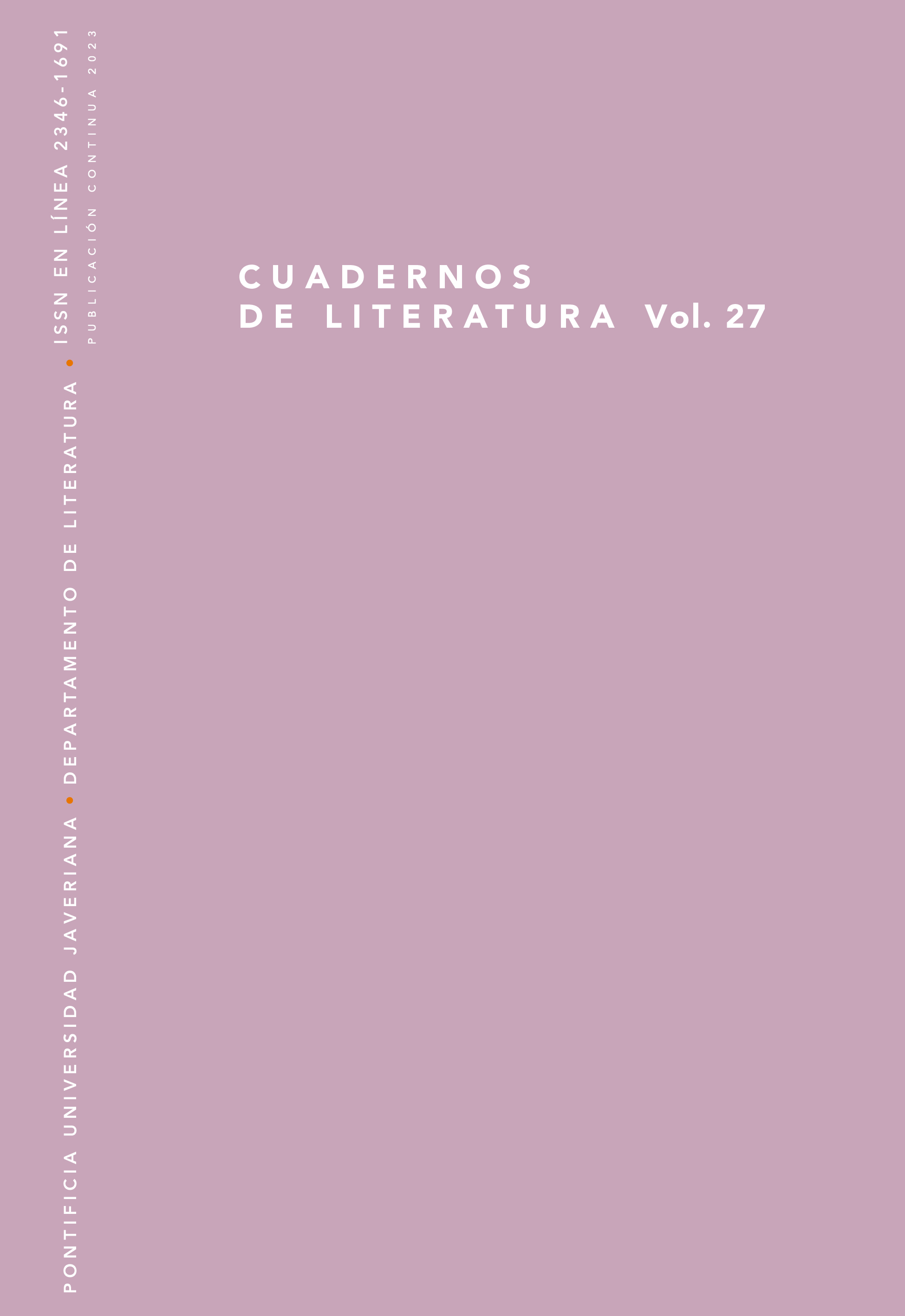Los umbrales del humanismo. Las polaridades de la cultura y sus relatos
##plugins.themes.bootstrap3.article.details##
The article “Humanism thresholds. The polarities of culture and their narratives” intends to introspect humanism as a narrative project, and as an affective process that requires practices and cultural products to configure human beings and societies.
From a transdisciplinary standpoint and from various perspectives, the notion of humanism is problematized as an affective configuration that is woven from two fundamental experiences: the sublime and the abject. Extremes that in their manifestations become the axes of elaboration of any sense of “the human” and that support the various stories and objects that in Western culture have been identified with humanism. Humanistic narratives expressed in multiple aesthetic products that in their various proposals wish to be wise. For humanism fundamentally integrates practical wisdom, more than theories or ethical or philosophical elaborations; basic premises of any human group that in their primarily function established both individual ways of proceeding and social practices.
humanism, abjection, sublimehumanismo, abyección, sublime
Benjamin, Walter. “Tesis de filosofía de la historia”. Discursos interrumpidos I. Taurus, 1989, pp. 175-192.
Burke, Edmund. Indagación sobre el origen de nuestras ideas acerca de lo sublime y de lo bello. Traducido por Juan de la Dehesa, Universidad de Alcalá, 1807.
Cuartas, Carlos Julio. Humanismo y legado ignaciano. Grupo Editorial Ibáñez, 2015.
Eco, Umberto. Historia de la Belleza. Lumen, 2004.
Dolto, Françoise. Kaspar Hauser, le sequestre ou coeru pur. Mercure de France, 2002.
Hankiss, Agnes. “Ontología del yo: la recomposición mitológica de la propia historia de vida”. La historia oral. Métodos y experiencias. Debate, 1993, pp. 251-256.
Kristeva, Julia. Poderes de la perversión. Siglo XXI, 1989.
Lejeune, Philippe. Le pacte autobiographique. Seuil, 1996.
Mauer,
McIntyre, Alasdaire. Tras la virtud. Editorial Crítica, 1987.
Rubio, Jaime. “Lo sublime”. Universitas Philosophica, vol. 9, n.º 17-18, dic.1991-jun 1992, pp. 37-49.
Talon-Hugon, Carole. Goût et dégoût. L’art petut-il tout montrer ? Editions Jacqueline Chambon, 2003.
Vallejo, Fernando. El desbarrancadero. Debolsillo, 2016.
---. La virgen de los sicarios. Alfaguara, 1994.
Villegas, Juan. La estructura mítica del héroe moderno en la novela del siglo XX. Planeta, 1973.

This work is licensed under a Creative Commons Attribution 4.0 International License.


